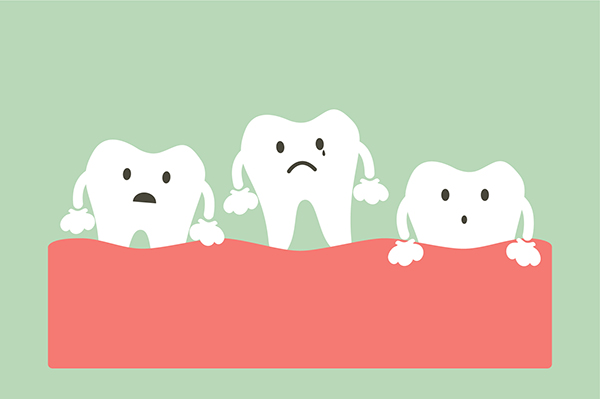 General dentistry focuses on preventative dentistry, but it also includes restorative treatments that address problems like a loose tooth. A tooth becoming loose may eventually lead to it falling out of its socket, so such issues should never be ignored.
General dentistry focuses on preventative dentistry, but it also includes restorative treatments that address problems like a loose tooth. A tooth becoming loose may eventually lead to it falling out of its socket, so such issues should never be ignored.
How general dentistry addresses loose teeth
General dentistry has multiple ways to address issues like a loose tooth. It often comes down to the reason that the tooth became loose in the first place. A general dentist can help diagnose the root cause of the problem so appropriate treatment can be performed.
How loose the patient’s tooth is also impacts the effectiveness of the treatment. Here are a few ways that a dentist addresses the different stages of loose teeth.
Slightly loose tooth
A slightly loose tooth sometimes ends up fixing itself. The dentist might advise the patient to avoid biting or chewing with the tooth while it heals. Sticking to soft foods can also help with the healing process. A mildly loose tooth should heal on its own within a week. The dentist will explore other treatment options if it remains loose after that.
Moderately loose tooth
A moderately loose tooth is dangerously close to falling out of its socket, so it requires immediate dental care. A dentist might opt to address it by using a splint to stabilize it in its socket. The splint is attached to the two teeth closest to the loose tooth, preventing it from moving. Keeping the tooth stable enables new bone and gum tissues to develop in its socket, holding the tooth in place.
Loose tooth due to teeth grinding
People who grind their teeth leave them exposed to extreme bite forces. The behavior typically occurs during sleep, so they might not even be aware of their condition. Teeth grinding leads to damaged teeth structures, and it can make teeth loose.
A dentist will address a loose tooth caused by teeth grinding by stabilizing it with a dental splint. A nightguard might be recommended to reduce the forces acting on the patient’s teeth while they sleep. The dentist will also try to diagnose why the patient grinds their teeth and provide a more permanent solution.
Loose teeth due to periodontal disease
Loose teeth can be a symptom of periodontitis, the advanced stage of gum disease. Left untreated, these teeth will eventually fall out of their socket. A dentist might recommend treatments like root scaling and planing to address the patient’s loose teeth.
The procedure involves removing tartar from teeth roots and their surfaces. It also includes polishing teeth roots, making it harder for tartar deposits to form on them. Treatments like bone grafts can also be used to fix loose teeth caused by gum disease.
We fix loose teeth
Our dentist can fix your loose tooth regardless of the cause. Give us a call or visit our Plano clinic to set up an appointment.
Request an appointment or call Texas Implant & Dental Specialists at 972-535-6555 for an appointment in our Plano office.
Related Posts
General dentistry helps to keep your mouth healthy with preventative treatments like teeth cleanings. It addresses issues that develop in your mouth. Regardless of how well a person takes care of their teeth, they might become damaged or discolored due to factors like trauma to the face or taking medication like tetracycline antibiotics.Veneers are one…
A general dentistry clinic can provide treatments for a knocked-out tooth. This type of dental injury often happens because of a strong impact on the face. It can be from a fight, a vehicular accident, or a sports injury. If you want to know if a general dentistry clinic can restore your dislodged or knocked-out…
If the dentist has discovered decay on the tooth, there are general dentistry treatments to repair it and prevent new ones from growing. A cavity or tooth decay is a hole in the tooth that develops over time. Cavities begin slowly and become more prominent if they are not addressed. Since you may not feel…
